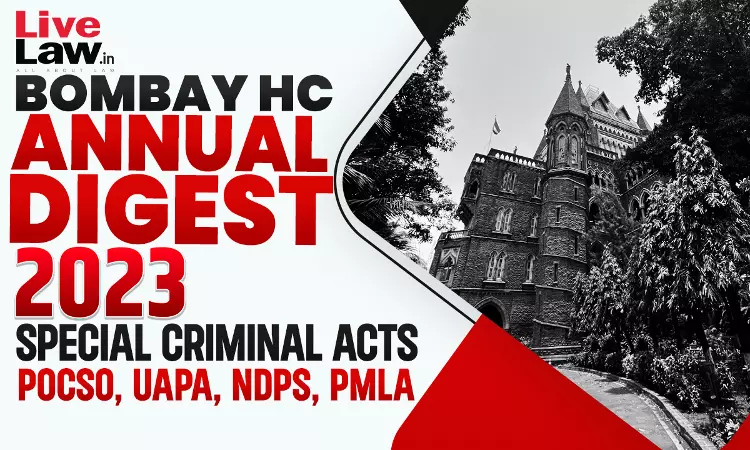Bombay High Court 2023 Digest On Special Criminal Acts - POCSO, UAPA, NDPS, PMLA
LIVELAW NEWS NETWORK
14 Jan 2024 9:30 AM IST

Next Story
14 Jan 2024 9:30 AM IST
Protection of Children from Sexual Offences Act, 20121. Kala Kendra's Performance License Can't Be Cancelled When Alleged Offence Under POCSO Act Not Committed On Premises: Bombay High Court Case Title: Natraj Sanskrutik Kala Kendra through its proprietor Vishal Nandkishor Gangawane v. State of Maharashtra & Ors. Citation: 2023 LiveLaw (Bom) 117 The Bombay High...
